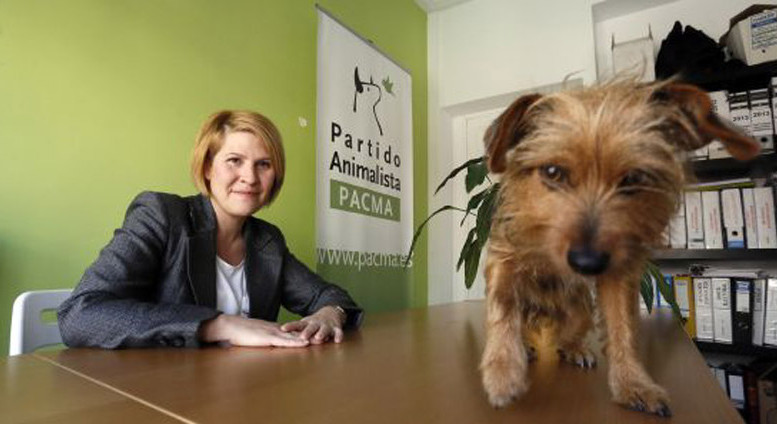• PACMA nets more votes for Congress than either BILDU or Canary Coalition
• Animal-rights campaigners gather more than 1 million votes in Senate race
Overshadowed by coverage in the Spanish press of the Dec. 20th election showings of Spain’s new Podemos and Ciudadanos parties, a new animal rights party running an unorthodox and low-budget campaign garnered more votes than two regional parties that won seats in the upcoming Congress and more than two of Spain’s legacy parties with seats in the last Congress.
The Partido Animalists (PACMA) won 219,181 votes in its campaign for seats in Spain’s Congress of Deputies – more than the Basque separatist movement BILDU or the Canary Coalition and as many as incumbent parties UPyD and Unió on Sunday – but no elected representatives because of Spain’s election rules, which make it hard for fledgling parties to gain seats in Congress. At the same time, more than 1 million votes were cast for the animal rights party in the nationwide Senate race.
PACMA conducted its campaign with a miniscule 15,000 euro budget, holding no massive campaign rallies like the other parties and choosing instead to rely on social media videos of its candidate and campaign teams who rode neighborhood to neighborhood passing out campaign leaflets.
PACMA’s campaign platform called for an end to bullfighting and local bull-running and bull-baiting fiestas across Spain, as well as a ban on hunting, defense of the environment, public healthcare and secular education.
PACMA’s goal, said the group’s 42-year-old president Silvia Barquero, was to elect a “representative to defend animals” in Congress and that while the party fell short of that goal she hopes “we are an incentive for other parties to take note of the social support” for animal rights among the public.


